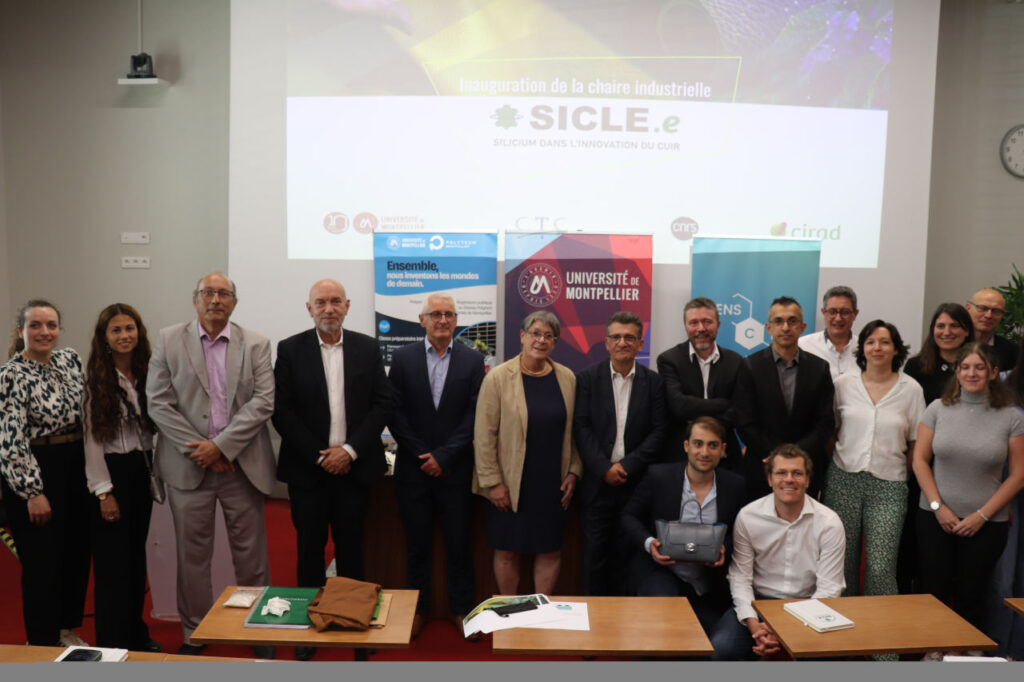Inauguration of the “SICLE.e” industrial chair at the University of Montpellier
On Tuesday, May 20, 2025, the University of Montpellier and CTC inaugurated the SICLE.e industrial chair (Silicon in Leather Innovation, Laboratories and Companies Serving the Environment) in the presence of Philippe Augé, President of the University of Montpellier, and Françoise Nicolas, CEO of CTC Group.

A historic industry undergoing rapid change
A material used since prehistoric times, leather is one of the oldest materials invented by humans to protect themselves from the elements. Today, it has established itself as a noble and aesthetic material, at the heart of the fashion, luxury, footwear, glove-making, and furniture industries. The French leather industry represents a structured industrial ecosystem, bringing together more than 130,000 employees and around 100 different professions.
However, this industry faces major challenges: growing societal pressure, strict regulatory changes, and urgent environmental issues. While leather has the advantage of being a recycled material made from hides sourced from the agri-food industry, its transformation process still requires the use of chemicals, particularly chromium. However, European regulations (REACh) are imposing increasingly strict thresholds, which could ultimately weaken the entire sector. Alternatives to chrome tanning struggle to combine technical performance, environmental acceptability, and market satisfaction.
SICLE.e: a chair for inventing the sustainable leather of tomorrow
To address these challenges, CTC, as a professional economic development committee, is working alongside manufacturers to build a more sustainable, innovative, and competitive industry. It is within this dynamic that the SICLE.e Industrial Chair was created, supported by CTC and two laboratories at the University of Montpellier, ICGM and IBMM, in partnership with CIRAD's BioWooED unit.
This chair is based on an ambitious scientific and industrial partnership, bringing together complementary expertise in biomolecular chemistry, agronomy, materials science, and leather crafts. It is structured around two areas of research:
- the development of an innovative, non-toxic, patented silicon-based tanning process that offers both environmental performance and new functionalities for leather;
- the valorization of co-products and effluents from tanning to create new materials that may be of interest to other sectors such as agriculture, agri-food, or construction.
SICLE.e will also train a new generation of researchers (twelve young scientists) and offer specific training courses to professionals in the sector, in order to support them in the transition to more virtuous practices.
By bringing together scientific, industrial, economic, and environmental issues, SICLE.e has established itself as a national benchmark for sustainable transformation in the leather industry.
As a reminder, an industrial chair is a partnership between a research organization and industrial players aimed at developing innovative scientific solutions for a given sector over several years. SICLE.e is a project funded to the tune of €1.9 million.